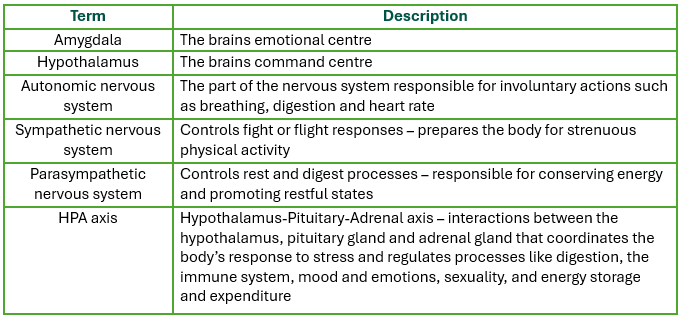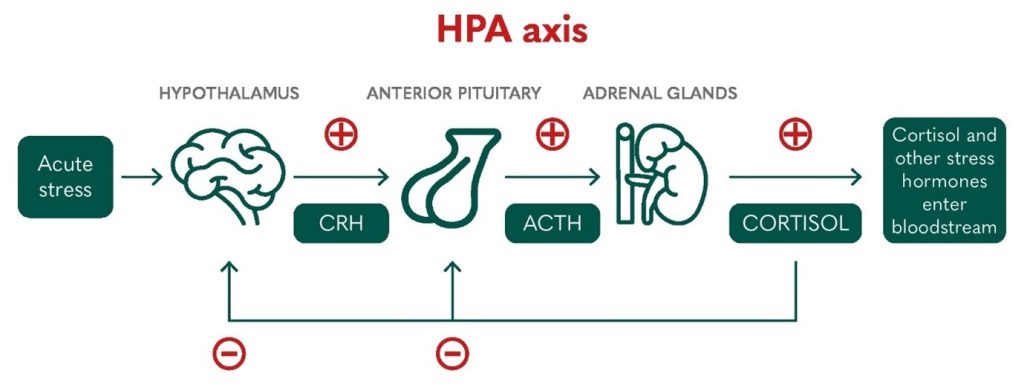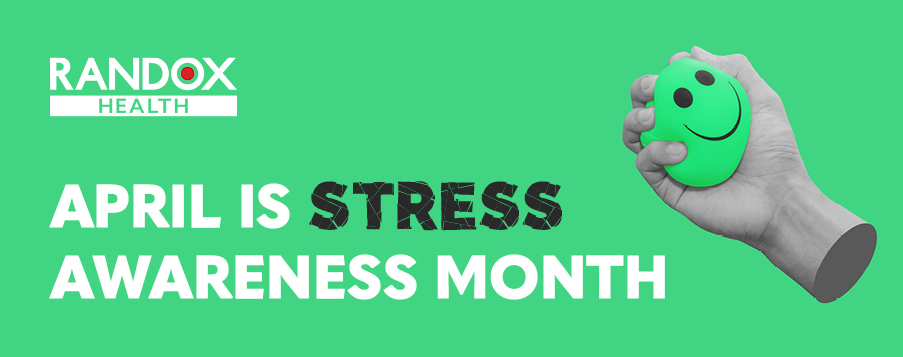03/04/2024
We often consider stress to be just another part of life. And in many ways, it is. Our stress response has evolved alongside us, over millions of years, to give us the best chance at survival. After all, being chased by predators across the desert would be rather stressful. It’s exactly this stress response that allows our body to enter the fight or flight state we’ve heard so much about. There aren’t very many lions running around the places we live anymore, at least not for most of us. Yet, the stress response remains. Just like us, it has adapted to suit our new lifestyles. Our stress response kicks in to make us jump out of the way of an oncoming car, catch the ball tossed at our heads, and even dodge the lamppost that suddenly appeared in our path. But the stress response system is also triggered by things like money trouble, traffic jams and arguments with our loved ones. What is it about this fundamental survival mechanism that can cause us to become so burnt out? What is cortisol and why is it commonly associated with stress? How to lower cortisol levels? Find out more below.
Types of Stress
Stress can be categorised as acute or chronic. Acute stress is the type that throws you to the footpath when you see a car approaching you at high speed as you stroll across the road. It’s a reaction to an immediate stressor which helps us react in an appropriate manner, even though we’ve often already reacted before we realise.
Chronic stress on the other hand is a persistent and often overwhelming feeling of stress. It can affect both our physical and mental health in a variety of ways ranging from anxiety and depression to high blood pressure and a weakened immune system. What makes the problem worse? Many people who suffer from chronic stress take up unhealthy habits, like smoking or drinking to help them cope, further compromising their health and wellbeing. This, along with other research, suggests that people who suffer from chronic stress are more likely to develop conditions such as heart disease, obesity, and depression1.
Most people know when they are stressed. However, the symptoms of stress can be non-specific and, in some cases, overlooked. You can see the different symptoms of stress in the table below2.

Studies show that stress can trigger our immune system’s response, leading to increased inflammation and the release of cytokines. Our nervous system and immune system are closely connected, so when our body senses stress, it can influence our immune activity, and vice versa. However, if stress becomes chronic, this delicate balance can break down, leading to ongoing low-level inflammation, which might contribute to various health problems.
What is the stress response?
To explain how the stress response works, we’ll first need to cover a few key terms:

When we are exposed to a stressor, a signal is sent to the hypothalamus. The hypothalamus then communicates the perceived stressor to the rest of the body through the nervous system. This leads to activation of the adrenal gland which releases epinephrine, also known as adrenaline. This epinephrine release triggers an increase in heart rate, blood pressure, and accelerates breathing to get more oxygen to the brain. Increased oxygen in the brain heightens alertness and sharpens the senses. While all this is happening, epinephrine also triggers the release of glucose from the body’s stores which is used to produce energy in the cells4.

As the epinephrine surge subsides, the hypothalamus activates the next stage of the stress response, the HPA axis. The hypothalamus releases corticotropin-releasing hormone (CRH), which in turn triggers the release of adrenocorticotropic hormone (ACTH), stimulating the adrenal gland to release cortisol. Cortisol keeps the body in a state of stress until the threat passes, at which point, cortisol levels fall, initiating the parasympathetic nervous system4. As you can imagine, it takes a lot of energy to start and sustain this response. That’s, in part, why after periods of stress we can feel exhausted.

What is cortisol?
Cortisol is a steroid-structured hormone released from the adrenal gland which influences metabolism and the immune response, regulating blood sugar levels, and reducing inflammation. Its small and fat-soluble structure means it can be readily transported around the body and move from the bloodstream into cells easily5. It’s really important in your sleep cycle, with cortisol levels highest around the time you wake up, and lowest around midnight. Due to its importance in stress response, cortisol has long been recognised as biomarker of stress.
How To Lower Cortisol Levels.
The theme for this year’s Stress Awareness Month is little by little, highlighting the impact that consistent, modest, and positive changes can have on your wellbeing. By taking even the smallest steps every day towards self-care and stress reduction, you can see significant improvements in your mental health. Recommendations from the Stress Management Society have been summarised below6.
Connect! Check in with someone in your support network or chat to someone new. A sense of community and belonging can go a long way to reduce feelings of loneliness.
Move! Get moving in a way that makes you happy. The type of exercise isn’t important. Take a walk. Do some yoga. Landscape your garden or run a marathon. Whatever it is your comfortable with, exercise is a great way to relieve stress. If you can exercise outside, even better! The fresh air will do you the world of good.
Breathe! Breathing is an underrated tool for managing your stress and helping you relax. Short and shallow breathing can increase feelings of anxiety. However, long, deep, conscious breaths can help shift your body into a state of relaxation.
Sleep! There’s a strong link between stress and sleep. Making small changes to improve your bedtime routine can really help. Take some time to relax before bed, and as you know, avoid screens. Ideally, make your bedroom a tech-free area so you aren’t tempted. Journalling is also a helpful tool. Writing down the thoughts that ail you before bed can help you leave your problems on the bedside cabinet, ready for your attention in the morning.
Be Mindful! Mindfulness is another great tool for helping you relax and be present. It can help with self-awareness and is a good exercise for practicing your emotional regulation and control. People practice mindfulness in different ways. Some like to dedicate sessions for mindfulness. Others prefer to simply be present while completing a task. It doesn’t matter which you choose, as long as it works for you.
Testing for Cortisol and Stress
Our Signature health check includes testing of up to 350 biomarkers relating to your full body health, including a cortisol blood test. In addition to cortisol, we also measure your testosterone levels7, along with 4 other biomarkers which have been linked to stress.
To book your Signature Platinum Plus package, visit our website here or to take a look at our other health test, click here
If you’d like to get in touch with us, you can contact us at any of our socials, or by filling in the contact form here.
References
- Mariotti A. The effects of chronic stress on health: new insights into the molecular mechanisms of brain–body communication. Future Sci OA. 2015;1(3). doi:10.4155/fso.15.21
- NHS. Stress. Mental Health. Published November 22, 2022. Accessed March 27, 2024. https://www.nhs.uk/mental-health/feelings-symptoms-behaviours/feelings-and-symptoms/stress/
- Health and Safety Executive. Work-Related Stress, Depression or Anxiety Statistics in Great Britain, 2023.; 2023.
- Harvard Health Publishing. Understanding the stress response. Staying Healthy. Published July 6, 2020. Accessed March 27, 2024. https://www.health.harvard.edu/staying-healthy/understanding-the-stress-response
- Çay M. The Effect of Cortisol Level Increasing Due to Stress in Healthy Young Individuals on Dynamic and Static Balance Scores. North Clin Istanb. Published online 2017. doi:10.14744/nci.2017.42103
- Stress Mangaement Society. Little By Little, A Little Becomes A Lot. Stress Awareness Month 2024. Published 2024. Accessed March 27, 2024. https://www.stress.org.uk/sam2024/
- Choi JC, Chung MI, Lee YD. Modulation of pain sensation by stress‐related testosterone and cortisol. Anaesthesia. 2012;67(10):1146-1151. doi:10.1111/j.1365-2044.2012.07267.x



